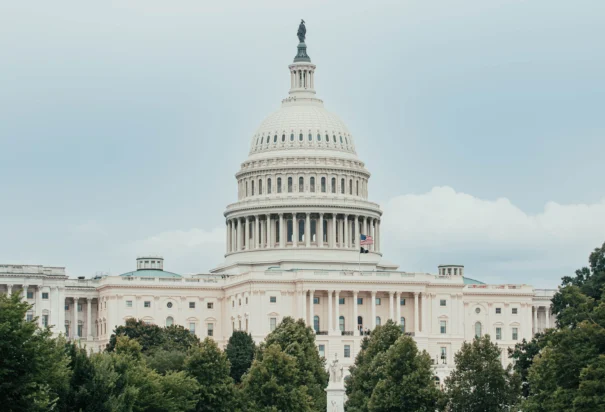
Photo by Connor Gan
On June 4th, the Senate Committee on Health, Education, Labor and Pensions held a hearing on “The Assault on Women’s Freedoms: How Abortion Bans Have Created a Health Care Nightmare Across America.” Filled to the brim with women young and old, the room was tense as the audience waited for opening remarks from Senator Bernie Sanders (I-VT). Sen. Sanders began by underlining the issue: the overturning of Roe v. Wade has abolished the constitutional right to an abortion, having devastating impacts on women across the country.
The gavel was swiftly passed to Senator Patty Murray (D-WA) as Sen. Sanders explained that it was more appropriate for a woman to chair the meeting. Sen. Murray provided another historical overview of the issue at hand, circling back to the fundamentals of freedom being at stake. “The joy of raising a family is a decision women should make for themselves,” she said, emphasizing that a third of women currently live in states where they do not have this choice. “The attacks on our freedoms do not stop at abortion,” she reminded us, “Republicans are seeking a swift way to gain control over the bodily autonomy of all women in the US.”
Importantly, Sen. Murray reminded the committee, and in particular the minority members, that while abortions may have an overwhelming amount of media coverage at the moment, forced pregnancies do not. She described a teenager who had been forced to deliver a baby, while clutching a teddy bear. A forced pregnancy does not need to make headlines before making someone’s life a living hell. As she yielded to the minority leader, Senator Bill Cassidy (R-LA), she underlined that abortion has won every time it has been on the ballot. “We will restore and protect abortion rights for every woman in America” she said as she began the hearing.
The panel of witnesses for the hearing included Madysyn Anderson, an abortion patient, Dr. Nisha Verma, MD, MPH, OBGYN and Fellow at Physicians for Reproductive Health, Destiny Lopez, MPA and acting CEO of the Guttmacher Institute, Dr. Allison Linton, MD, MPH, and Chief Medical Officer of Planned Parenthood Wisconsin and Fellow at Physicians for Reproductive Health, Chrtistina Francis, MD and Chief Executive Officer of the American Association of Pro- Life Obstetricians and Gynecologists, and Melissa Ohden, MSW and Founder of the Abortion Survivors Network. The respective first four witnesses were called by the majority members of the committee, with the next two speaking at request of the minority members.
Each witness served an important purpose. Anderson opened with a personal testimony recounting the abortion she chose to have as a college student. As a Texas resident, she was unable to receive reproductive healthcare in her state. She was forced to spend $2850 to travel out of state several times in order to eventually receive the care she desperately needed. Her experience left her acutely aware of her legislature’s deep mistrust in women making their own decisions as she faced several holding periods and judgements from the state. It made her even more certain of her decision. Following Anderson, the doctors on the panel were able to offer the perspective of the health providers who are also fighting tough battles in attempting to provide essential healthcare in the face of a highly politicized issue.
The topics frequently revisited by the majority members and their witnesses were the importance of access to telehealth abortions, the protection of abortion medication, and the increasing lack of providers and medical students in states that have laws banning abortion. Doctors have become afraid to practice their profession in their own communities, as they are often forced to tell their patients that there is nothing they can do for them. Medical students who are of reproductive age no longer want to train in states where their own medical choices are limited.
This hearing highlighted how polarizing the issue of reproductive healthcare has become. Abortion will inevitably bring people to the polls in November. We must vote like our lives depend on it, because, unfortunately, for many Americans, they do.